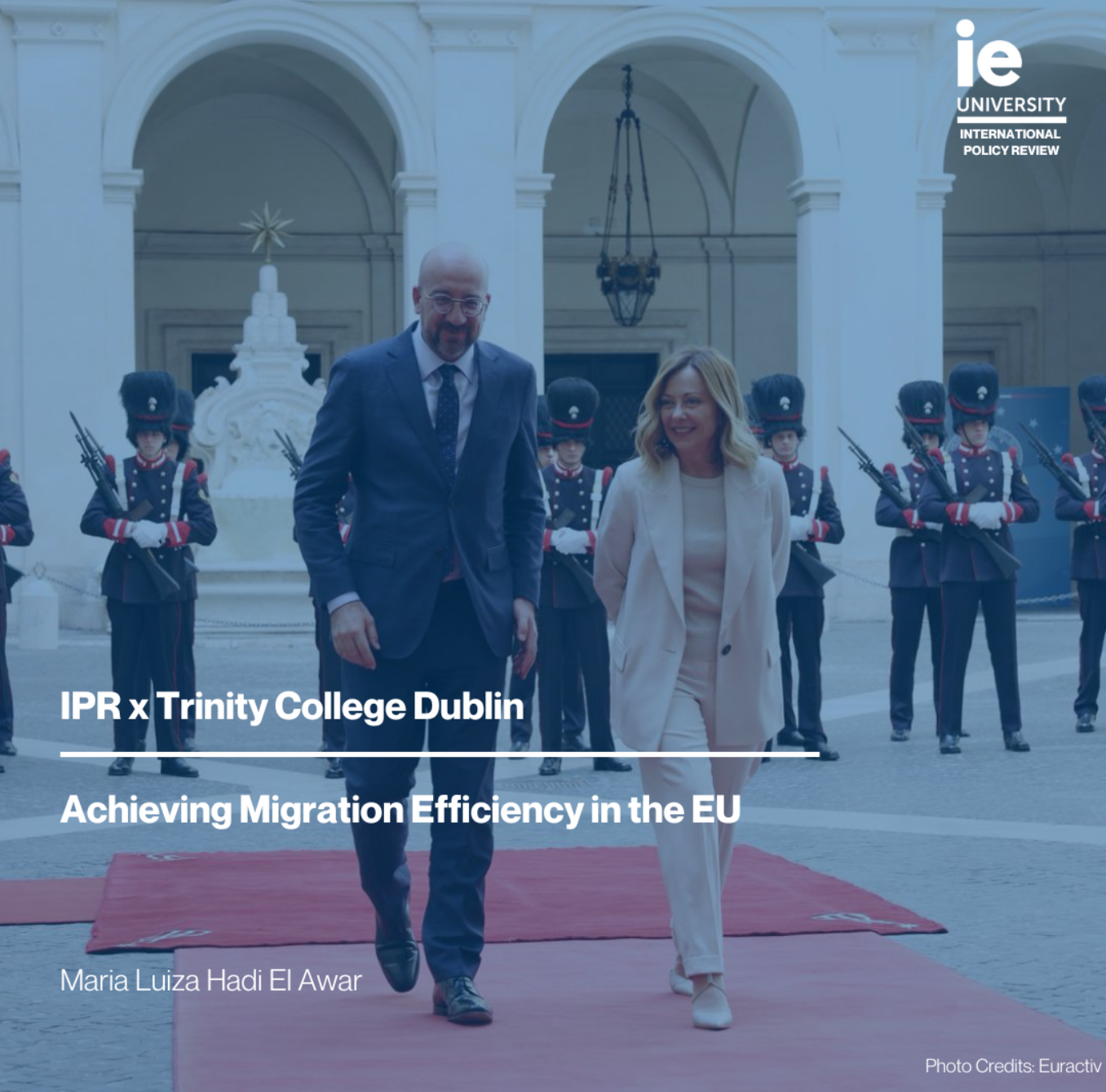
01 Jul Achieving Migration Efficiency in the EU
Maria Luiza Hadi El Awar
IE University,
Law and International Relations, 2028
E-mail: mawar.ieu2023@student.ie.edu
Abstract
This paper examines the European Union’s approach to migration management, analysing the ineffectiveness of existing policies. It follows the struggle to balance the EU’s supranationality with member states’ sovereignty in determining courses of action with a normative-explanatory approach. It touches upon key legal instruments such as directives and case law that demonstrate the extent of policy harmonisation present in the EU today. The study goes on to explore tension concerns, economic interests, and humanitarian responsibilities with a critical evaluation of different case studies. Uneven enforcements and political resistance are some obstacles impeding the progressive efforts of the EU to create a common migration policy. Finally, this paper suggests certain reforms to establish a uniform EU migration system that upholds solidarity, proportionality, and human rights circumventing any inefficiencies.
READ THE FULL ARTICLE HERE (Page 41-50)
Keywords: European Union, Migration policy, Asylum seekers, Supranationalism, Member State, sovereignty, Dublin Regulation, New Pact on Migration and Asylum, Shared competence, Solidarity principle, Integration policies, Refugee crisis, Human rights, Border management, Quota system, Legal harmonisation, Policy reform, Irregular migration, Burden-sharing, Socio-economic integration.

Sorry, the comment form is closed at this time.